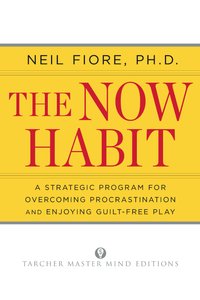Time to read: 3:28 minutes
Inspired by the book The Now Habit by Neil Fiore
Most things we need to get done are similar to crossing a board 2 feet wide and 100 feet long. When the board is on the ground we are likely to walk across it without hesitating. However, when the board is raised 200 feet in the air, resting between two buildings, the thought of crossing the board becomes terrifying.
When a board is 200 feet off the ground we are unlikely to cross it until we notice that the board is on fire.
Fires are lit from the pressure of deadlines and the expectations of others. The fear of fire is greater than the fear of falling off the board.
The book The Now Habit explains that we are asked to cross 100 feet boards every day. However, procrastinators raise their boards off the ground because they crave perfection. Procrastinators see mistakes as unacceptable. They see failure as intolerable.
Is there a way to cross a 200-foot high board (a difficult task) without lighting a fire? Could we could install safety nets underneath our boards to ensure the fall won’t hurt?
There are safety nets we can install and their cost includes a simple mindset shift.
“The mind is its own place and in itself, can make a Heaven of Hell, a Hell of Heaven.”
– John Milton
To change our mindset we need to change our language – picking a better set of words to describe a situation.
“Carefully watch your thoughts, for they become your words. Manage and watch your words, for they will become your actions. Consider and judge your actions, for they have become your habits.”
– Mahatma Gandhi
When we procrastinate our self-talk often suggests and reinforces feelings of ‘victim-hood’. We use language such as ‘I have to do it’ or ‘I should do it’. Such statements send a clear message to our minds: “I don’t want to do it, but I must force myself to do it.”
Our ‘I have to’s’ provide us with ‘no-win’ situation:
A) “If I don’t do it I will be punished”
B) “If I do it I will be going against myself”
Our ‘I should’s’ translate to: “I’m angry and disappointed about the way things are and I’m going to resist it”. This belief forms over several years of negative self-talk from what was once: “I dislike the way things are, and I’m going to do something about it.”
- Whenever you notice yourself saying ‘I should…’, replace it with ‘This could lead to…’ (see the opportunities that might come from starting the task).
- Whenever you notice yourself saying ‘I have to…’, replace it with ‘I can at least do…’ (make a small effort in that direction can make a difference).
The final and most destructive reason we procrastinate comes from a belief that our self-worth is tied to our results. The thought of having our work be less than ideal is terrifying. The fear of judgment causes our mind to seek safety by delaying and distracting ourselves from completing the task.
“Berkeley psychologist Rich Beery states that fear of failure stems from assuming that what you produce reflects your complete ability. You therefore use procrastination to protect your worth from being judged.”
– Neil Fiore, The Now Habit
‘I’ve failed on this task’ = ‘I’ve failed as a person’
What you need is a simple reality check: ‘what is the likelihood that doing a poor job will permanently damage my career or social status?’ There is rarely a time in which poor performance leads to more than temporary pain. (Note that there is a difference between procrastinating and genuine fear – you don’t procrastinate jumping off the edge of a cliff, you genuinely fear it…and rightfully so). The next time you consider your self-worth on the line try to complete the sentence: ‘I would recover by… ‘.
By forcing yourself to complete the statement: ‘I would recover by… ‘, you create an insurance plan in your mind. If you can think of the steps need to get you back to the status quo you will learn to see failure as a temporary outcome. More often than not the path back to where you are now is considerably easier than you realize.
The next time you feel trapped by procrastination, just remember to use the right language:
- ‘This could lead to…’
- ‘I can at least do…’
- ‘I would recover by…’
Face that project, take on that task. And don’t worry – you’ve got some safety nets in place!
